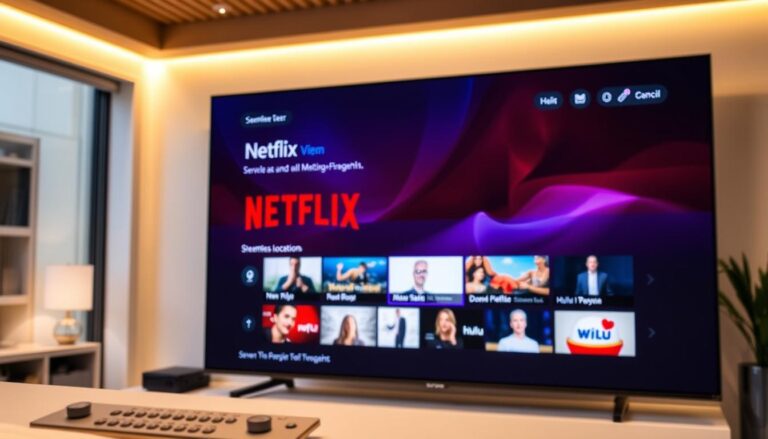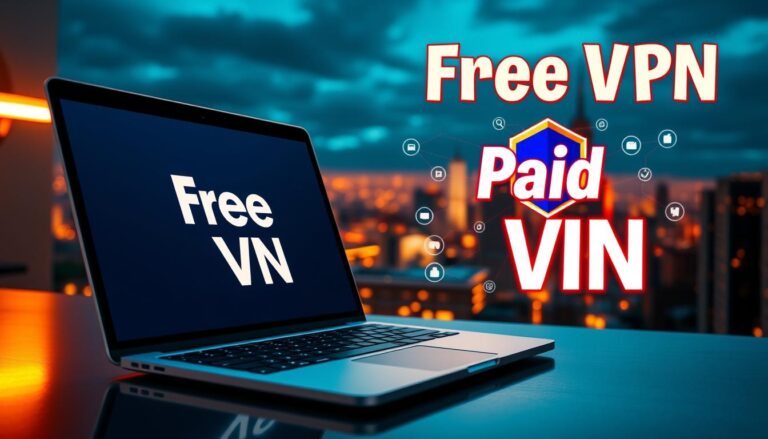Best VPNs for Privacy in 2025 (Full Comparison)
Need a clear, tested guide to pick the best vpn fast? This roundup compares top services side-by-side so U.S. users can find the right fit. We focus on real-world tests, speeds, server coverage, and app ease.
Independent reviewers ran 300+ speed checks, reviewed 50–61 providers, and logged thousands of research hours. That work highlights names you already know: ExpressVPN, NordVPN, Surfshark, Private Internet Access, Proton VPN, and Hotspot Shield.
Our aim is simple: show which product matches privacy-first needs, streaming reliability, or a budget plan. We weigh audited policies, RAM-only servers, no-logs claims, and leak protection. You’ll get editor picks, detailed reviews, and clear metrics on speed and stability.
We’re upfront about intent: this is a commercial guide that uses hands-on testing rather than marketing claims. Read on to see which provider delivers real protection, steady streaming, and fair price per month.
Key Takeaways
- Top picks include ExpressVPN and NordVPN for speed and unblocking.
- Private Internet Access stands out for budget pricing and torrenting.
- Look for audited, RAM-only infrastructure and strict no-logs policies.
- Avoid many free vpn options unless you vet leak protection and limits.
- Our testing covers apps on Windows, macOS, Android, iOS, Linux, and smart TVs.
Why VPNs for Privacy in 2025 matter right now
With rising online threats, choosing a trustworthy vpn has moved from optional to critical. Using vpn tools hides internet traffic from ISPs and hostile Wi‑Fi, which helps protect banking logins, messages, and shopping data.
User intent: secure browsing, anonymity, and trustworthy reviews
Most users want practical protection: steady speed for streaming, safe banking, and verified reviews that back claims. Look for kill switches, leak prevention, and clear no‑logs promises.
What’s changed: audits, RAM-only servers, and post‑quantum talk
Leading providers now publish independent audits and shift to RAM-only server setups to remove disk-based logs.
There’s growing discussion about post‑quantum-ready encryption and modern protocols like WireGuard, Lightway, and Hydra that balance speed and security.
- Read audit summaries rather than trust marketing.
- Server placement affects both privacy and performance, especially in restricted regions.
- Not all services offer the same protections—verify jurisdiction and feature lists.
| Focus | Why it matters | Example |
|---|---|---|
| Audits | Verify no‑logs | Independent reports |
| RAM servers | No disk traces | Faster wipe on reboot |
| Protocols | Speed & security | WireGuard/Lightway |
Our independent testing methodology and scoring
Rigorous, repeatable tests let us measure how each product performs across real devices and networks. We scored 50–61 providers against 30+ criteria that weigh security, privacy, speed, usability, and value.
Lab setup and platform checks: apps and protocols were tested on Windows, macOS, Android, iOS, Linux, and smart TVs to spot feature parity and app quirks.
How we measure core protections
We run 300+ speed tests across nearby and long-distance servers to capture peak speeds and consistency.
Leak checks (DNS, IPv6, WebRTC), kill-switch verification, and traffic integrity tests ensure protections work under real faults.
Validating claims and real-world features
We review audits, transparency reports, and open-source apps where available. Known vendors such as Proton VPN and Private Internet Access receive focused checks.
- Streaming reliability: repeated logins to major platforms across multiple locations.
- Value scoring: upfront price, promotions, renewal rates, and trial/refund policies.
- Support and usability: install flow, settings clarity, and help response.
| Area | What we test | Why it matters |
|---|---|---|
| Security | Encryption, kill switch, leak tests | Protects traffic under attack |
| Performance | 300+ speed tests, protocol comparisons | Shows real download and upload speeds |
| Privacy | Audits, no-logs claims, jurisdiction | Confirms data handling practices |
| Usability | Apps, features, support | Reflects day-to-day experience |
Final scores balance objective metrics with hands-on usability and support results to produce a clear, actionable review.
Editor’s picks: the top VPNs for privacy and security
Editors distilled our hands-on data to name services that balance real security, speed, and day-to-day ease. Below are three short recommendations that match common use cases: rigorous privacy, budget features, and a fast free tier.
Best overall privacy package
NordVPN tops this list for audited no-logs claims, RAM-only servers, and a robust kill switch.
It delivers stable speeds with only ~5–6% download loss on average and a vast network of 8,000+ servers across 126–127 countries.
Expect strong support, consistent apps, and an industry-leading security toolset that favors privacy-first users.
Best budget with rich features
Surfshark and PIA make great budget choices. Surfshark adds multi-hop, ad/malware blocking, and unlimited connections.
PIA brings verified no-logs and torrenting-friendly settings with polished apps on major platforms.
Both services offer competitive long-term price points and standard 30-day money-back guarantees for risk-free trials.
Best free and fast options
Hotspot Shield stands out as the fast free option thanks to the Hydra protocol and strong leak protection.
Free plans have clear limits on servers and bandwidth, but paid tiers unlock wider streaming services access and better speeds.
- Streaming vs. privacy: ExpressVPN is strongest at unblocking streaming services (95% success across many regions), while Nord and Proton VPN focus more on audits and secure routing.
- Performance notes: Long-distance speeds and stability drove our picks; measured speeds and real-world streaming tests informed rankings.
NordVPN: best for security & privacy in 2025
NordVPN pairs audited policies with fast modern protocols to keep daily traffic secure and unobstructed. The service is based in Panama and publishes independent audits that back its no-logs claims. Its infrastructure uses RAM-only servers and a dependable kill switch to reduce risk of persistent data traces.
Why it leads
NordLynx (WireGuard-based) delivers high speeds with ChaCha20 encryption and low overhead. Threat Protection Pro adds malware and ad blocking that works even when the vpn is off, giving extra protection during everyday browsing.
Speed, stability, and testing
Our tests show only ~5–6% download loss and ~4% upload loss on average. That translates to smooth streaming, fast downloads, and reliable connections under heavy use.
Servers and global reach
Nord runs 8,000+ vpn servers across 126–127 countries. Broad server locations and multihop options help users reach blocked content and maintain strong latency worldwide.
- Advanced features: double VPN, split tunneling, optional bundles (NordPass, identity tools).
- Pricing: long-term plans can drop to about $3.09 per month, backed by a 30-day money-back guarantee.
“Audited, RAM-only servers and NordLynx make this service a top pick for security-minded users.”
ExpressVPN: intuitive apps, streaming power, and consistent speeds
ExpressVPN centers on simple, fast protection that keeps streaming smooth and connections steady. The service uses audited, RAM-only servers and the Lightway protocol to balance security and performance across devices.
Privacy-first design
Independent audits back the provider’s no-logs claims, and RAM-only vpn servers erase data on reboot. Lightway helps with quick connect times—about ~3 seconds—while keeping encryption efficient.
Streaming and city-level reach
Industry-leading unblocking: ExpressVPN unlocked 95% of major streaming services during tests and supports streaming in 109 countries.
Its server network includes 57 U.S. city locations to bypass regional and sports blackouts, plus Smart DNS (MediaStreamer) for TV device compatibility.
User experience and value
The vpn app is intuitive across platforms, offering fast connections and stable speeds for 4K streaming, gaming, and large downloads. Support includes 24/7 live chat and a 30-day money-back guarantee, with long-term plans near $3.49 per month and a 7-day mobile trial.
“Set-and-forget reliability: excellent apps, strong streaming results, and consistent speeds make this service ideal for users who want easy protection.”
Private Internet Access: verified no-logs and torrenting strength
Private Internet Access (PIA) stakes its reputation on court-verified no-logs claims, regular transparency reports, and open-source apps that let experts vet code.
Open-source apps, transparency reports, and port forwarding
Trust signals: audit records and court outcomes reinforce PIA’s no-logs stance. The company publishes frequent transparency reports so users can track requests and handling of data.
Torrenting-ready: P2P is allowed across the network, and port forwarding speeds up peer connections and downloads. An integrated ad/malware blocker (MACE) adds an extra layer of protection during file transfers.
Vast server network with 50-state coverage
PIA runs one of the largest server fleets, including coverage in all 50 U.S. states. This city-level reach helps bypass regional blocks and access local streaming content.
- Core protections: reliable kill switch, DNS leak protection, and optional obfuscation for restrictive networks.
- Performance: quick downloads (~4–5% download loss), somewhat lower upload speeds, and stable connections for large transfers.
- Usability and value: highly configurable apps, unlimited device support, and competitive price for households with many connections.
“PIA is a practical choice for users who need proven no-logs safeguards and strong torrenting features without sacrificing speed.”
Surfshark: budget-friendly with advanced features
Surfshark packs advanced tools into a budget-friendly package that suits large households and power users. It pairs audited no-logs claims and RAM-only servers with WireGuard as the default to keep connections fast and private.
Double VPN, Camouflage Mode, CleanWeb
Security stack: Double VPN and Camouflage Mode add layered routing and obfuscation on restrictive networks.
CleanWeb blocks ads and trackers to speed page loads and reduce exposure to malicious content. A dependable kill switch helps prevent leaks if a connection drops.
Unlimited devices and aggressive long-term pricing
Surfshark offers unlimited connections and a broad server network spanning 100+ countries. Long-term plans drop to about $1.99 per month, making it a strong value leader.
Performance shows good download speeds (~8% loss) ideal for streaming and daily use, with uploads sometimes weaker over long distances.
- Apps: consistent vpn app across major platforms.
- Extras: Surfshark One bundles antivirus and breach alerts.
- Guarantee: 30-day money-back guarantee for risk-free trials.
“A top value pick: aggressive price, unlimited connections, and a rich feature set make Surfshark hard to beat on price-to-feature ratio.”
Proton VPN: speed, Secure Core, and open-source apps
Proton VPN combines verified transparency with tools that improve both privacy and performance. The service publishes independent audits and ships open-source apps so security-conscious users can inspect code and confirm no-logs claims.
Secure Core routing via privacy-friendly countries
Secure Core uses multi-hop routing through Switzerland, Iceland, or Sweden to reduce the risk of traffic correlation. Routing initial hops through these privacy-friendly countries makes it harder to link session metadata back to a user.
Speed tools: split tunneling and VPN Accelerator
Split tunneling lets you route selected apps outside the encrypted tunnel to save bandwidth and lower latency on critical connections.
VPN Accelerator improved distant server speeds by about ~50% in our tests, and observed downloads averaged ~8% loss with uploads near ~4% loss. That profile suits streaming, cloud backups, and video calls.
NetShield blocks ads and malicious domains as an added layer of protection while browsing. Proton’s global coverage spans roughly 117–122 countries, with continual expansion of vpn servers and server locations to improve access and performance.
Quick take: Proton VPN is a privacy-forward option that pairs audited apps and Secure Core routing with strong speeds and flexible pricing per month on longer plans. A 30-day prorated refund gives testers room to evaluate service and connections.
Hotspot Shield: best free vpn option with Hydra protocol
If fast downloads and a functional free tier matter most, Hotspot Shield delivers a clear, usable option.
Very fast downloads and strong leak protection
Hydra is Hotspot Shield’s proprietary protocol and it shows in speed tests—downloads lost only about ~3.17% in cited checks. That makes the service excellent for streaming and large downloads.
Trade-off: uploads tend to be weaker, so creators and heavy upstream users may see slower performance.
Free plan perks and limits to expect
The free vpn tier gives basic access and works well for casual web use. Expect limited server choices, caps on simultaneous connections, and reduced streaming access compared to paid plans.
Paid tiers expand server network access (80–85 countries, 125+ locations), unlock more servers and services, and come with a generous 45-day refund policy. Typical price per month drops on longer plans.
- Why pick it: fast downloads via Hydra, audited no-logs (2023), and strong leak protection (IPv6, DNS, WebRTC).
- Limits: free vpn users may face streaming blocks on some platforms (Disney+ can be hit-or-miss).
- When to upgrade: if you need reliable streaming, more vpn servers, or higher upload performance, move to a paid plan.
| Feature | Free plan | Paid plan |
|---|---|---|
| Download speeds | Very fast (Hydra) | Very fast, consistent |
| Upload speeds | Weaker | Improved for creators |
| Server network | Limited access | 80–85 countries, 125+ locations |
| Leak protection | IPv6/DNS/WebRTC protected | Same strong protections |
| Refund | None | 45-day money-back |
“Hydra yields fast downloads and solid leak protection, making Hotspot Shield a top free choice when speed matters most.”
VPN speed tests and performance findings
Measured results come from 300+ runs across worldwide servers. Local connections to nearby vpn servers showed minimal loss for ExpressVPN and Nord—typically 2–6% on downloads. Proton VPN averaged ~8% download loss and ~4% upload loss. Surfshark matched ~8% download loss but had higher upload drops. Hotspot Shield posted ~3% download loss but up to ~80% upload loss on some routes.
Local vs. long-distance patterns
Nearby servers keep latency low and speeds high. Long hops increase latency, jitter, and packet loss as congestion rises.
Pick a nearby city or lower-load server within a server network to preserve real-world speed.
Protocol comparisons and trade-offs
NordLynx (WireGuard variant) offers low overhead and efficiency. Lightway shines on quick reconnects and roaming. Hydra tops raw download rates but can weaken uploads. OpenVPN remains stable but slower.
Upload vs. download effects
Download drops mainly affect streaming and large downloads. Upload weakness hurts cloud backups, live video, and gaming. Check jitter and reconnect reliability when switching connections.
| Metric | ExpressVPN / Nord | Proton VPN | Hotspot Shield |
|---|---|---|---|
| Download loss (local avg) | 2–6% | ~8% | ~3% |
| Upload loss (avg) | ~4–6% | ~4% | Up to 80% |
| Best protocol | NordLynx / Lightway | WireGuard | Hydra |
Key takeaway: choose nearby servers, prefer WireGuard/NordLynx or Lightway for balanced speed and security, and avoid multi-hop when raw throughput matters.
Privacy and security features that matter in 2025
Good protection starts with a short checklist of real-world controls you can test and configure. These features stop leaks, limit data persistence, and make legal requests harder to act on. Pick a service that combines strong defaults with clear controls in apps.
Kill switch, DNS/WebRTC leak protection, and RAM-only servers
A reliable kill switch must cut internet traffic the instant a connection drops. That prevents accidental exposure of active sessions or credentials.
Leak protection should cover DNS, IPv6, and WebRTC so browsers and apps do not reveal your true IP. Test these with simple online checks after connecting.
RAM-only servers erase data on reboot and reduce the chance of stored logs. Leading services like ExpressVPN, NordVPN, and Surfshark now use RAM-only setups across major server pools.
No-logs policies, audits, and jurisdiction realities
Audited no-logs claims give third-party validation that providers do not retain session records. Proton VPN, Nord, Surfshark, PIA, and Hotspot Shield all publish or reference independent audits in recent reviews.
Jurisdiction affects how legal requests get handled. Panama, BVI, Netherlands, the U.S., and Switzerland all carry different risks. Match a provider’s legal home and litigation history to your threat model.
- Additional controls: multi-hop, Secure Core, and obfuscation help on restrictive networks and improve anonymity.
- Encryption and protocols: modern options protect internet traffic while keeping speeds usable—WireGuard/NordLynx, Lightway, and Hydra balance that trade-off.
- Due diligence: check transparency reports, past incidents, and app permissions before subscribing.
Quick setup tips: enable the kill switch, turn on full leak protection, prefer RAM-only server locations, and pick WireGuard or the vendor’s fast protocol to keep speeds high. Test settings with a short trial and one complete review of app permissions and logs.
Server network and server locations: why coverage still counts
A wide, well-placed server grid affects speed, access, and reliability more than marketing claims do.
Breadth across countries and depth inside cities both matter. Country coverage helps you reach geo-locked services, while city density lowers latency and improves speeds for nearby users. NordVPN’s 8,000+ vpn servers across 126–127 countries show breadth, while ExpressVPN’s 57 U.S. city nodes add deep local access.

Choosing the right server
Pick proximity first: a nearby server usually gives better speeds and lower jitter. Check server load and switch protocols if you see drops—WireGuard/NordLynx or Lightway often balance speed and security.
Use specialized nodes when needed. Streaming, multi-hop, and Secure Core or PIA’s state-level coverage are useful for specific tasks. Surfshark’s global reach (100+ countries) and Proton VPN’s 117–122 country footprint help when you need alternate exit points.
Shuffle IP, multi-hop, and obfuscation
Obfuscation masks traffic on restrictive networks. Multi-hop and Secure Core add another layer of routing to reduce traceability.
Shuffle IP (ExpressVPN) rotates addresses inside a location to avoid IP blocks and slowdowns. Hotspot Shield’s 80–85 country coverage with 125+ locations offers many fallbacks during regional blackouts.
A dispersed server map improves resilience, reduces congestion during peak hours, and keeps streams and calls stable.
- Switch to a nearby city node if streaming lags.
- Try a lower-load server to recover speed quickly.
- Use multi-hop or obfuscation when networks block standard connections.
Practical tip: when gaming or streaming, pick a low-latency city node or a streaming-optimized server. If access fails, use a rotated IP or alternate country to restore service and protection without large speed penalties.
Streaming services and geo-unblocking reliability
Streaming access now hinges on a provider’s real-world unblock rates and low-latency routes. Choose a service that proves it can reach major platforms while keeping buffering rare.
Netflix regions, sports blackouts, and UK/US platforms
ExpressVPN unlocked about 95% of 120+ platforms during tests and its 57 US city nodes help bypass sports blackouts and local blocks. That city-level depth matters when a regional feed is restricted.
Proton VPN pairs solid speeds with split tunneling and the Accelerator tool to route high-bandwidth apps through the fastest exits. That reduces buffering for 4K streams and synchronized live content.
Smart DNS and device compatibility for TVs and consoles
Smart DNS (MediaStreamer) lets you use the service on smart TVs and consoles that lack native apps. This is a practical route to unlock region content without full device-level encryption.
When a platform blocks common endpoints, try switching protocols, select a different server, or enable obfuscation to hide traffic patterns. These steps often restore access without large speed trade-offs.
- Pick providers with proven Netflix, BBC iPlayer, and US streaming success to minimize buffering.
- Use Smart DNS when TVs or consoles don’t support native apps.
- City-level servers help get around sports blackouts and regional restrictions.
- Switch protocols/servers or enable obfuscation if a service is blocked.
- Expect variability: some free services and even some paid ones can struggle with Disney+ and similar platforms.
| Task | Best approach | Impact |
|---|---|---|
| Unlock Netflix & BBC | Choose provider with high unblock rate (e.g., ExpressVPN) | Higher success, fewer reconfigurations |
| Sports blackouts | Use city-level servers (57 US cities example) | Better access to regional feeds |
| TVs & consoles | Smart DNS / MediaStreamer | Device compatibility without full vpn on the device |
| 4K streaming | Prefer low-latency servers and split tunneling | Fewer stalls, better picture quality |
“Proven unblock rates plus steady speeds and deep city coverage are the keys to a reliable streaming setup.”
Pricing and value: what to expect per month in 2025
Promos make choices tempting, but true value depends on features and renewal price. Look beyond the headline rate and weigh refunds, bundles, and how many devices you need.
Best deals, long-term discounts, and renewals
Typical promo prices run low: Surfshark at about $1.99 per month, NordVPN near $3.09 per month, ExpressVPN around $3.49 per month. Proton VPN often lists near $4.49 per month, PIA near $2.03, and Hotspot Shield has a free plan plus an annual ~$7.99 per month tier.
Remember refunds and trial windows: most providers offer 30-day money-backs; Hotspot Shield extends 45 days on paid plans. Renewal price often jumps, so set a reminder to reassess before the higher rate kicks in.
Free plans vs. paid vpn services: where to draw the line
Free vpn plans can cover basic needs: quick protection on public Wi‑Fi and light browsing. However, free vpns often limit servers, throttle bandwidth, restrict streaming, and curb speeds.
Upgrade when you need reliable streaming, global server access, better upload speeds, or advanced security features like multi-hop and RAM-only servers.
| Provider | Promo per month | Refund |
|---|---|---|
| Surfshark | $1.99 | 30-day |
| NordVPN | $3.09 | 30-day |
| Proton VPN | $4.49 | 30-day prorated |
- Watch renewals: a low promo can double or triple at renewal.
- Check bundles: password managers or antivirus can add value without big price hikes.
- Plan trials: use the refund window to test streaming, speeds, and servers before committing.
Quick tip: pick a plan that balances price with the exact features you need, then calendar a renewal check to avoid surprise increases.
Money-back guarantee and trials: try before you commit
Use trial windows as controlled experiments to check streaming, speed, and protection. Plan what you will test and set simple pass/fail checks. That helps you use the refund window wisely and avoid surprise charges.
How refund windows differ
Standard terms: most providers offer a 30-day money-back guarantee that refunds unused time. ExpressVPN and NordVPN follow this model. Hotspot Shield extends that to a 45-day refund on paid plans.
Short mobile trials and practical checks
ExpressVPN adds a 7-day mobile trial. Use short trials to test streaming access, app setup, and speeds on phones and tablets before committing.
- Test during peak and off-peak times and on different servers to judge stability.
- Validate core protections: enable the kill switch and run leak tests (DNS/IPv6/WebRTC).
- Measure upload and download speeds to match your needs (cloud backups, UHD streaming).
- Contact support during the trial to assess response times and helpfulness.
“Treat the trial as a hands-on review: real-world checks reveal feature gaps faster than marketing claims.”
Quick tip: document failed tests and request a refund within the stated window if the service does not meet your needs. When using vpn tools, this method reduces risk and helps you pick a service that fits your price and protection goals.
How to choose the one best VPNs for your needs
Match daily habits and threat models to provider strengths to find the one best fit. Start by listing how you use the internet: streaming, torrenting, travel, gaming, or strict data protection. Then pick a service that maps to those needs.

Match use cases to providers
- Streaming: ExpressVPN shines for unblock rates and smooth speeds.
- Strict privacy & audits: NordVPN pairs audits, RAM-only servers, and strong security.
- Torrenting: PIA is optimized for P2P with port forwarding and verified no-logs.
- Budget plus features: Surfshark delivers unlimited connections and advanced tools.
- Secure core & speed: Proton VPN adds multi-hop Secure Core and solid throughput.
- Free fast downloads: Hotspot Shield offers a usable free tier with Hydra speeds.
Config and server tips
Protocol choice: use WireGuard or NordLynx for balance of speed and security. Switch to Lightway or Hydra when reconnect speed matters.
Split tunneling: route streaming apps outside the tunnel on shared connections to save bandwidth.
Multi-hop: enable only when you need extra routing anonymity; it reduces raw speeds.
| Need | Server choice | Why |
|---|---|---|
| Lowest latency | Nearby city node | Reduces ping, improves gaming and calls |
| Best unblocking | Recommended streaming server | Provider-tested endpoints often succeed |
| Strong anonymity | Multi-hop / Secure Core | Makes correlation harder at cost of speed |
Price, apps, and trial checklist
Weigh long-term price versus depth of features and how simple the apps are. A cheap plan with many settings can be great for power users but confusing for beginners.
- Test kill switch: disconnect and verify no leaks.
- Try streaming: access Netflix/Prime and note buffering.
- Measure speeds: run uploads and downloads on chosen servers.
- Check app parity: confirm features on phone and desktop.
“Pick the one best service that matches your daily use—streamers, privacy seekers, and torrenters will choose different winners.”
VPN apps and user experience: setup, settings, and daily use
Setup speed and clear defaults reduce chances of misconfiguration and data exposure. A clean onboarding flow helps newcomers and saves time for busy professionals.
Ease of setup and quick connects
ExpressVPN stands out for the most consistent apps and fastest connects (~3 seconds). Surfshark and PIA give extra toggles and deeper settings that power users like. Proton VPN and PIA publish open-source apps so experts can inspect code.
Split tunneling and platform parity
Split tunneling routes chosen apps outside the encrypted tunnel so you can keep local services while protecting sensitive sessions. Most providers support it, though macOS versions sometimes lag behind Windows and Android.
Daily use and device reach
Pick a service that blends one-click protection with advanced options. Ensure a reliable kill switch, protocol auto-selection, and favorites for trusted servers. For TVs and routers, use Smart DNS to enable streaming on devices without native apps.
“Auto-connect on untrusted Wi‑Fi, protocol auto-select, and saved servers make daily protection simple.”
VPNs for Privacy in 2025: final recommendations
Finalists cover clear needs. ExpressVPN leads on streaming services and easy apps.
NordVPN is the best vpn overall for strict security and small speed loss. Surfshark gives the best value with unlimited device support. Proton VPN adds Secure Core routing and speed tools. PIA stands out for verified no-logs and torrenting. Hotspot Shield is the best free pick with Hydra and very fast downloads.
Baseline protections matter: look for audited no-logs, RAM-only servers, and a dependable kill switch. These features stop leaks and reduce data persistence on servers.
Server network breadth and city-level depth affect access and latency. Travelers and heavy streamers should prefer services with many city nodes and tested unblock rates.
Use trials and money-back guarantees to validate speeds, app parity, and access to your streaming services. Test during peak times and on devices you use daily.
| Need | Recommended provider | Why |
|---|---|---|
| Best overall security | NordVPN | Audits, RAM-only, minimal speed loss |
| Streaming & ease | ExpressVPN | High unblock rates, simple apps |
| Budget & unlimited devices | Surfshark | Low price, strong features |
| Free fast downloads | Hotspot Shield | Hydra protocol, fast downloads |
Value check: long-term promos can be low, but renewal rates often rise. Compare per month pricing and set a reminder to reassess before renewal.
“Try before you commit: real-world checks reveal which service matches your devices, speeds, and streaming needs.”
Conclusion
Decide with practical signals. Prioritize audited no-logs, RAM-only servers, a reliable kill switch, and protocol choices that balance speed and security. These basics protect data and keep traffic private without heavy setup.
Test before you buy. Use trials and money-back guarantees to validate streaming, speeds, and everyday app behavior. Try Proton VPN or another shortlisted provider during the refund window to confirm server choice and performance.
Expect trade-offs: budget plans may sacrifice polish, some services favor download speed over upload, and deep city coverage trades breadth for local latency gains. Match strengths to your needs—streaming, torrenting, travel, or strict privacy.
Pick a service that fits your devices and price expectations. This review shows modern services meet real security and performance standards, helping users choose a secure, fast, and user-friendly vpn.
FAQ
What is the main difference between a free VPN and a paid VPN?
Free plans often limit monthly data, server access, and speeds. Paid services typically offer larger server networks, faster connections, stronger encryption, and features like a kill switch, split tunneling, and audited no-logs policies. Paid providers also fund independent security audits and more robust apps for Windows, macOS, Android, and iOS.
Can a VPN hide all my internet traffic from my ISP or employer?
A VPN encrypts traffic between your device and the provider’s servers, so your ISP or local network admin sees only encrypted data and the VPN server IP. However, the VPN provider itself can see destination traffic unless features like split tunneling or Secure Core-like routing are used. Always pick a provider with a verified no-logs policy and regular audits to reduce risk.
How important are server locations and server network size?
Server locations matter for accessing geo-restricted content and for latency. More servers and higher city density typically mean better speeds and less congestion. Look for providers with servers in the countries and cities you need, and options like multi-hop or shuffled IPs if you need extra privacy or to bypass strict networks.
What is a RAM-only server and why does it matter?
RAM-only servers run without persistent disk storage, so all data clears on reboot. That design reduces the risk of logs being recovered and improves overall privacy. Many top providers now use RAM-only or diskless infrastructure and publish audit results to prove their setup.
Will a VPN slow my internet speed significantly?
Any VPN adds overhead from encryption and routing, so you’ll see some speed loss. Modern protocols like WireGuard, NordLynx, Lightway, and Hydra minimize impact. In real-world tests, top services often show single-digit percentage download loss on local servers. Long-distance connections typically show higher drops, so choose a provider with good worldwide performance.
Are free VPNs safe to use for torrenting and streaming?
Most free plans restrict P2P traffic and streaming capability. Some free providers allow limited torrenting but throttle speeds or cap data. For reliable streaming and safe torrenting, a paid plan with clear P2P policies, high speeds, and a kill switch is preferable.
What is a kill switch and do I need one?
A kill switch blocks internet access if the VPN connection drops, preventing accidental exposure of your true IP. It’s essential for privacy-focused users, anyone torrenting, and people in restrictive regions. Make sure the provider’s apps include a robust kill switch on your main platforms.
How do independent audits and transparency reports affect trust?
Independent audits validate claims like no-logs policies and the security of apps and infrastructure. Transparency reports show how providers handle data requests. Together, they increase trust and help you choose a service that prioritizes privacy and follows clear procedures under legal jurisdiction constraints.
How many simultaneous connections should I expect from top services?
Limits vary: some providers allow 5–10 simultaneous devices, while others, like Surfshark, permit unlimited connections. Choose based on how many phones, laptops, smart TVs, and routers you want to protect simultaneously.
What payment and refund options are common?
Most reputable services accept credit cards, PayPal, and sometimes crypto for added anonymity. Many offer a 30–45 day money-back guarantee and short trial periods; a few provide limited free tiers. Check refund policies for prorated vs. full refunds and any trial cancellation requirements.
Do VPNs work on smart TVs, consoles, and routers?
Many providers offer native apps for Android TV and Fire TV. Consoles usually need a router-level VPN or Smart DNS. Installing a VPN on a compatible router protects all devices on that network and avoids per-device limits, but setup can be more technical.
How does split tunneling help day-to-day use?
Split tunneling lets you choose which apps or destinations go through the VPN and which use your regular connection. It reduces latency for local services while protecting sensitive apps and helps when you need access to both local and geo-restricted content simultaneously.
Is there a difference between protocols like WireGuard, OpenVPN, and Lightway?
Yes. WireGuard and derived protocols like NordLynx are fast and efficient with modern cryptography. OpenVPN is mature and widely supported but can be slower. Lightway and Hydra aim to balance speed, reconnection times, and battery use for mobile devices. Pick a provider that supports multiple protocols and lets you switch.
How do I verify a provider’s no-logs claim?
Look for independent audits, court cases where no data was produced, and publicly posted transparency reports. Providers that publish technical whitepapers and allow third-party code review offer higher assurance. Jurisdiction and company history also matter for legal exposure to data requests.
Can a VPN protect me from malware or ads?
Some services include built-in features like ad and tracker blockers, malware protection, and browser-level defenses. These add-ons help but don’t replace dedicated antivirus tools. Check feature sets like CleanWeb, Threat Protection, or DNS filtering when comparing providers.
What should I consider when choosing the one best VPN for my needs?
Match the service to your primary use—privacy, streaming, torrenting, gaming, or travel. Evaluate security (encryption, audits, kill switch), speed (protocols and test results), server coverage, device support, and price per month. Trial periods and money-back guarantees let you test real-world performance before committing.






